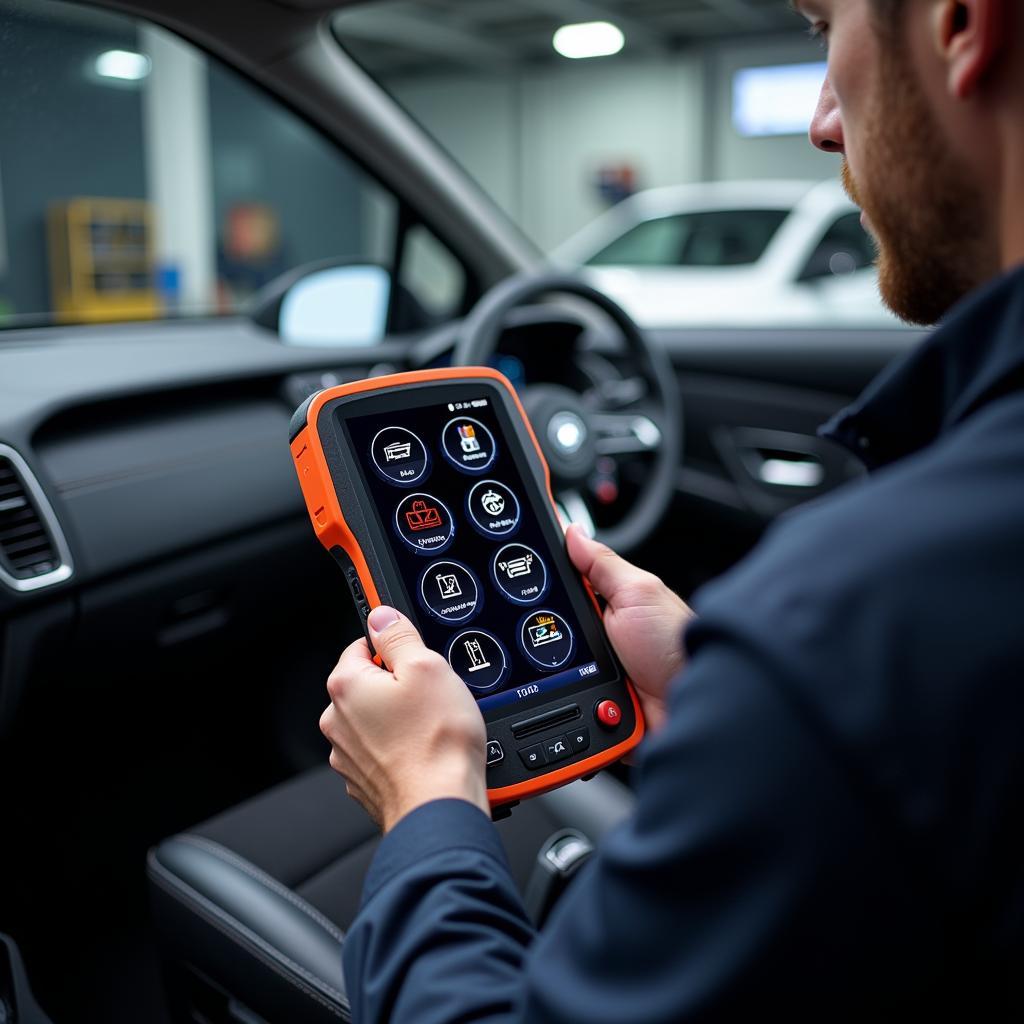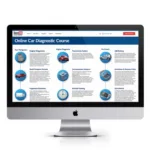A diagnostic test for a car is essential for maintaining its health and performance. It’s like a checkup for your vehicle, identifying potential problems before they become major headaches. In this guide, we’ll delve into everything you need to know about car diagnostic tests, from why they’re important to what they can reveal about your car’s condition. We’ll also cover different types of tests and what to expect during the process. Ready to become a more informed car owner? Let’s dive in.
Why is a Diagnostic Test for a Car Important?
Regular diagnostic tests can save you money in the long run by catching minor issues early on, preventing them from escalating into costly repairs. Imagine a small leak in your cooling system. A diagnostic test can pinpoint this early, allowing for a simple fix. Without a test, that small leak could lead to engine overheating and significant damage. A diagnostic test for a car also helps improve fuel efficiency. When your car is running optimally, it uses fuel more efficiently, saving you money at the pump. See our article on the average cost for a car diagnostic test for more information.
What Does a Car Diagnostic Test Tell You?
Diagnostic tests can reveal a wide range of issues, from problems with the engine and transmission to issues with the brakes, exhaust system, and other critical components. They can identify faulty sensors, electrical problems, and even issues with the car’s computer system. These tests provide valuable insights into your car’s overall health.
- Identify engine problems
- Pinpoint transmission issues
- Detect brake system malfunctions
- Uncover exhaust system problems
- Diagnose electrical issues
Types of Diagnostic Tests for a Car
Several types of diagnostic tests are available, each designed to assess different aspects of your car’s performance. The most common is the OBD-II scan, which reads data from the car’s onboard computer. Other tests include pressure tests for cooling systems and vacuum tests for engines. You can also find more information on specific diagnostic tests in our article on diagnostic test on a car.
What Happens During a Car Diagnostic Test?
During a typical OBD-II test, a technician connects a scanner to your car’s OBD-II port, usually located under the dashboard. The scanner retrieves diagnostic trouble codes (DTCs) from the car’s computer, which indicate specific areas of concern. The technician then interprets these codes to determine the nature of the problem.
How to Prepare for a Car Diagnostic Test
There’s not much you need to do to prepare for a car diagnostic test. Simply ensure the technician has access to the OBD-II port. You may also want to gather any information about your car’s recent performance, such as unusual noises or warning lights, to share with the technician.
How Often Should You Get a Diagnostic Test for Your Car?
It’s generally recommended to get a diagnostic test for a car annually or whenever you notice any unusual symptoms. This proactive approach can help identify potential problems early on and save you money on repairs in the long run. Are you looking for affordable car diagnostic testing options in West Wickham? Check out our article on car diagnostic testing west wickham.
Diagnostic Test for a Car: Conclusion
A diagnostic test for a car is a vital part of car maintenance. It provides valuable insights into your car’s health, helping prevent costly repairs and ensuring optimal performance. By understanding the importance of these tests and what they can reveal, you can take proactive steps to keep your car running smoothly for years to come. For more information about free diagnostic test options for car engines, visit our article on is there any free diagnostic test for car engine.
FAQ
- What is a car diagnostic test? A car diagnostic test uses a scanner to read data from your car’s computer, identifying potential problems.
- How much does a diagnostic test cost? The cost varies but is generally affordable, especially considering the potential savings on future repairs.
- How long does a diagnostic test take? A typical test takes about 30-60 minutes.
- Can I perform a diagnostic test myself? Yes, you can purchase an OBD-II scanner and perform a basic test yourself. However, a professional mechanic has the expertise to interpret the results accurately.
- What is an OBD-II port? The OBD-II port is the connection point for the diagnostic scanner, usually located under the dashboard.
- What are diagnostic trouble codes (DTCs)? DTCs are codes stored in your car’s computer that indicate specific areas of concern.
- Why is my check engine light on? A check engine light can indicate a range of issues, from a loose gas cap to a more serious engine problem. A diagnostic test is the best way to determine the cause.
Common Scenarios Requiring a Diagnostic Test
- Check Engine Light is on
- Car is not starting
- Reduced fuel efficiency
- Unusual noises or vibrations
- Transmission problems
Further Resources
- Check out our article about car diagnostic testing in Cowdenbeath: car diagnostic test fulford road cowdenbeath.
Need Help?
Contact us on WhatsApp: +1(641)206-8880 or Email: [email protected]. Our customer service team is available 24/7.

